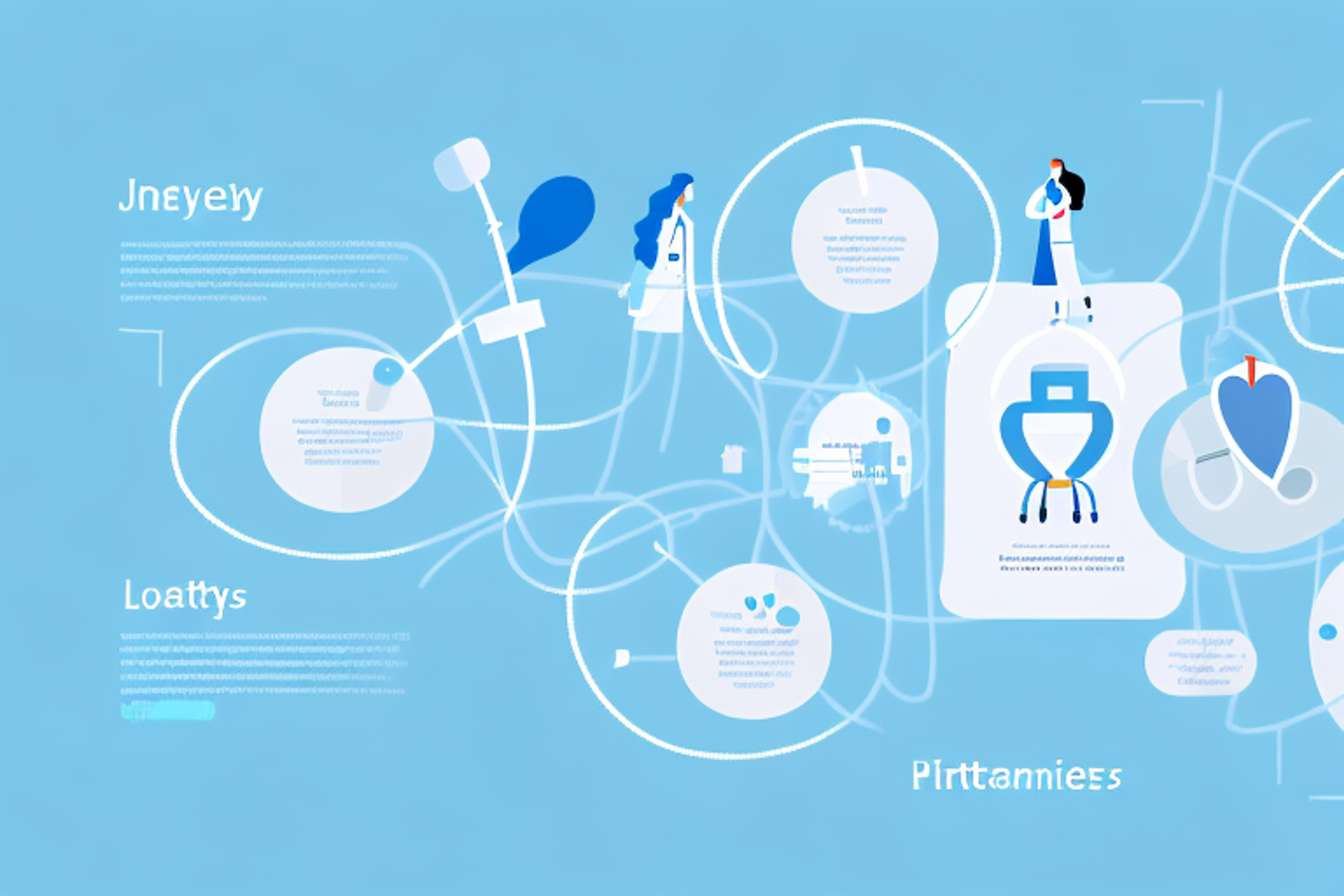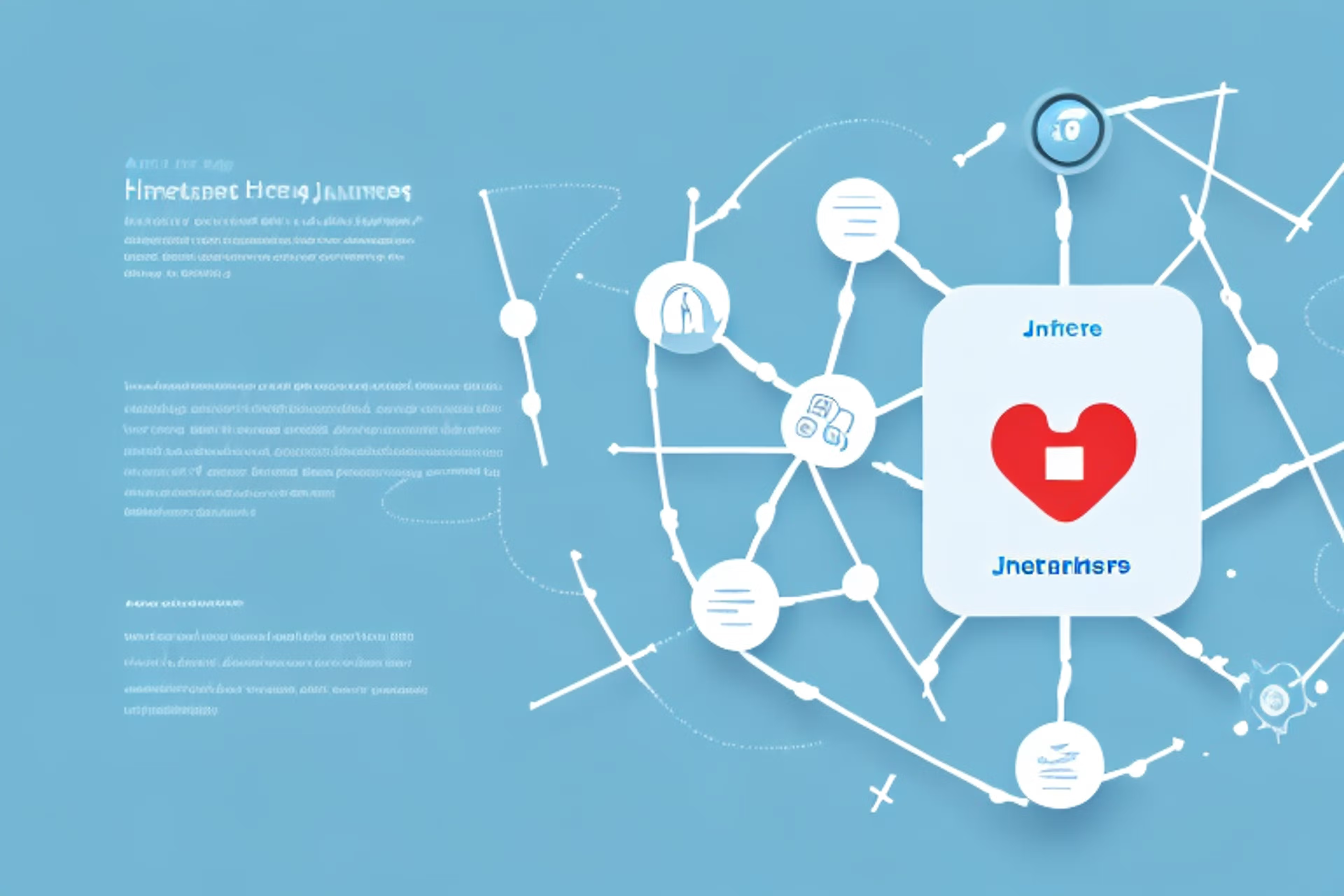The Key Factors Accel Considers for Healthcare Startups
Discover the crucial factors that Accel, a leading venture capital firm, considers when investing in healthcare startups.
Posted March 6, 2025

Table of Contents
As a leading venture capital firm with a focus on healthcare investing, Accel has a wealth of experience in identifying and supporting high-potential startups in the sector. In this article, we’ll explore the key factors that Accel considers when evaluating and investing in healthcare startups. By understanding these factors, founders can increase their chances of securing funding from Accel and building successful companies in the fast-growing healthcare industry.
Introduction to Accel as a Venture Capital Firm
Accel is a Silicon Valley-based venture capital firm that has been investing in technology startups for over 35 years. The firm’s healthcare portfolio includes some of the most successful and innovative companies in the sector, including Flatiron Health, Auris Health, Hims & Hers, and 23andMe. Accel’s healthcare team is made up of experienced investors and entrepreneurs with deep domain expertise in healthcare and life sciences, as well as in technology and product development.
In addition to its healthcare portfolio, Accel has also invested in a wide range of other industries, including consumer, enterprise, and fintech. Some of the firm’s notable investments outside of healthcare include Dropbox, Slack, Facebook, and Spotify. Accel’s investment strategy focuses on partnering with entrepreneurs who are building disruptive and innovative companies that have the potential to transform their industries. The firm provides not only capital, but also strategic guidance and operational support to help its portfolio companies achieve their goals.
Overview of the Healthcare Industry and its Potential for Startups
The healthcare industry is one of the largest and fastest-growing sectors of the global economy. With an aging population, rising healthcare costs, and increasing demand for personalized and digital health solutions, there are numerous opportunities for startups to innovate and disrupt traditional models of care delivery and management. The healthcare industry encompasses a wide range of sub-sectors, including biotech, therapeutic devices, digital health, healthcare IT, and more. Accel is interested in startups across all of these areas that have the potential to create significant value for patients, providers, and payers.
One of the key drivers of innovation in the healthcare industry is the increasing use of data and analytics. With the rise of electronic health records and other digital health technologies, there is a wealth of data available that can be used to improve patient outcomes, reduce costs, and enhance the overall quality of care. Startups that are able to leverage this data to develop new insights and solutions will be well-positioned to succeed in the healthcare market. Additionally, there is a growing trend towards consumerization in healthcare, with patients taking a more active role in managing their own health and wellness. Startups that are able to develop user-friendly, consumer-focused solutions that empower patients to take control of their health will be in high demand.
The Importance of Founding Teams and their Experience in Healthcare Startups
One of the most crucial factors that Accel considers when evaluating healthcare startups is the experience and expertise of the founding team. Successful healthcare startups are often led by founders with a deep understanding of the industry and its challenges, as well as a track record of building successful companies. Accel looks for founding teams with a passion for improving patient outcomes and a commitment to innovation, as well as the ability to attract and retain top talent in the healthcare industry.
Furthermore, having a diverse founding team with a range of skills and backgrounds can also be a key factor in the success of a healthcare startup. This can include individuals with experience in healthcare operations, technology development, marketing, and finance. A well-rounded team can bring different perspectives and approaches to problem-solving, leading to more innovative solutions and better outcomes for patients.
Evaluating the Market Size and Potential for Growth in Healthcare Startups
Accel also puts significant emphasis on assessing the market size and potential for growth of healthcare startups. This involves analyzing the total addressable market for the product or service, as well as the competitive landscape and potential barriers to entry. The healthcare industry is highly regulated, and startups must often navigate complex regulatory frameworks and compliance requirements. Accel looks for startups that have a clear path to market and the ability to scale rapidly once they gain traction.
In addition to market size and potential for growth, Accel also considers the impact that the healthcare startup can have on the industry and society as a whole. They look for startups that are addressing significant challenges in healthcare, such as improving patient outcomes, reducing costs, and increasing access to care. Accel believes that startups with a strong social mission and a focus on improving healthcare outcomes have the potential to create significant value for patients, providers, and society as a whole.
Understanding the Competitive Landscape and Identifying Unique Value Propositions
In addition to evaluating the market size and potential, Accel also closely studies the competitive landscape and seeks out startups with unique value propositions. This involves identifying startups that are leveraging new technologies, business models, or approaches to care that differentiate them from existing players in the market. Accel is particularly interested in startups that have the potential to create new market categories or disrupt existing ones.
Accel also looks for startups that have a clear understanding of their target audience and have developed a product or service that meets their specific needs. This includes startups that have conducted extensive market research and have a deep understanding of their customers' pain points and preferences. By focusing on startups that have a strong understanding of their target audience, Accel believes that they are more likely to succeed in the market.
Furthermore, Accel values startups that have a strong team with a diverse set of skills and experiences. This includes startups that have a mix of technical and business expertise, as well as startups that have team members with experience in the healthcare industry. Accel believes that a strong team is essential for the success of a startup, as they are responsible for executing the company's vision and bringing the product or service to market.
Examining the Regulatory Environment and Compliance Requirements for Healthcare Startups
As mentioned earlier, regulatory compliance is a critical factor in healthcare startups’ success. Accel works with startups to navigate complex regulatory frameworks and ensure that they are compliant with applicable laws and regulations. The firm also looks for startups that have strong relationships with regulatory agencies and are proactive in engaging with them early in the development process.
One of the biggest challenges for healthcare startups is keeping up with the constantly evolving regulatory landscape. Accel helps startups stay up-to-date with changes in regulations and compliance requirements by providing them with access to legal experts and industry specialists. This ensures that startups are always aware of any new regulations that may impact their business and can take proactive steps to comply with them.
In addition to regulatory compliance, healthcare startups also need to focus on data privacy and security. Accel works with startups to implement robust data privacy and security measures to protect sensitive patient information. This includes implementing encryption and access controls, as well as conducting regular security audits to identify and address any vulnerabilities.
The Role of Technology in Driving Innovation in Healthcare Startups
Technology is central to the success of many healthcare startups. Accel looks for startups that are leveraging new technologies such as machine learning, artificial intelligence, and blockchain to create breakthrough solutions in areas such as disease diagnosis, personalized medicine, and healthcare analytics. The firm also has a deep understanding of the underlying technology trends that are driving innovation in the healthcare sector and leverages this expertise to identify high-potential startups.
Assessing Financial Metrics such as Revenue, Profitability, and Funding Needs for Healthcare Startups
Financial metrics are an essential consideration for any healthcare startup seeking funding from Accel. The firm analyzes a range of financial indicators, including revenue growth, profitability, and funding needs. In addition to evaluating the startup’s current financial position, Accel also considers the potential for future growth and the ability of the founding team to execute on their vision.
Case Studies of Successful Healthcare Startups Funded by Accel
Over the years, Accel has backed some of the most successful and innovative healthcare startups in the industry. These include Flatiron Health, which uses big data and analytics to improve cancer care, and Auris Health, which develops innovative robotic platforms for minimally invasive surgery. By studying these case studies, founders can gain insight into best practices and success factors for healthcare startups.
Future Outlook for Healthcare Startups and Investment Opportunities for Accel
Looking ahead, the healthcare industry is poised for continued growth and innovation. Accel is committed to identifying and supporting high-potential healthcare startups that can create significant value for patients and healthcare providers. As the industry evolves, the firm remains focused on leveraging its deep expertise and network to support the next generation of healthcare entrepreneurs.
Conclusion: Key Takeaways for Founders Seeking Funding from Accel
For founders seeking funding from Accel, it’s essential to understand the key factors that the firm considers when evaluating healthcare startups. These include the experience and expertise of the founding team, the potential for growth and market size, the competitive landscape and unique value proposition, and the ability to navigate regulatory requirements and leverage technology to drive innovation. By paying attention to these factors and building strong relationships with Accel’s healthcare team, founders can increase their chances of securing funding and building successful companies in the dynamic and fast-growing healthcare industry.











